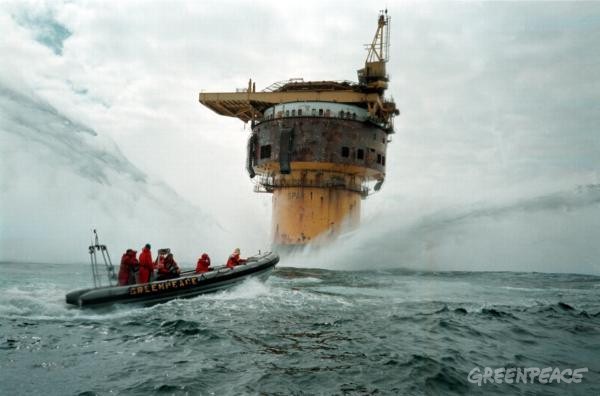
A top lawyer has urged the oil industry to be mindful of the fallout from Shell’s Brent Spar project when considering decommissioning.
Bob Ruddiman, head of oil and gas at Pisent Masons, said Shell was “slaughtered” over the plans in 1995 by the court of public opinion, which has only grown stronger since the advent of social media.
Shell was forced to abandon plans to sink the platform in the North Atlantic due to the backlash, despite being correct on the legislation and maintaining it was the safest decommissioning option.
Speaking at the Decom Offshore conference at the AECC yesterday, Mr Ruddiman said it needs to be at the forefront of operators’ minds when it comes to shutting down assets.
He said: “Shell were absolutely correct in terms of all the legislation but they were absolutely slaughtered in the court of public opinion.
“The court of public opinion, with the advent of social media, has become increasingly unfair. It is brutal, it is a judge on the basis of emotion.
“We need to be mindful of it, not necessarily be fearful of it, but as we look to decommissioning look at how we’re going to engage with that and be right on the front foot.
“We have an opportunity to present responsible business in its purest form, but if we are not mindful of the court of public opinion we have an issue.”
In 1995, Greenpeace activists occupied the Brent Spar platform for weeks in protest to the plans.
Mr Ruddiman said he was, at the time, doing work for a service company involved who had suggested using water cannons on them.
He added: “I wince to think that at the time that the protestors were on the infrastructure, including equipment of a service company I did work for, I was asked by one of the senior execs – not of the operator of the Brent Spar but one of the supply chain companies – if it would be acceptable to turn water cannons on the protestors.
“I pointed out it wasn’t a good idea on about eight counts.
“That was the first sitting of the court of public opinion that I’m aware of in our industry.”
The Brent Spar was eventually mothballed in a Norwegian yard before it was turned into foundations for a ferry terminal.


